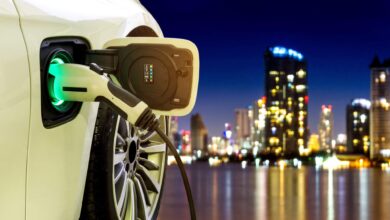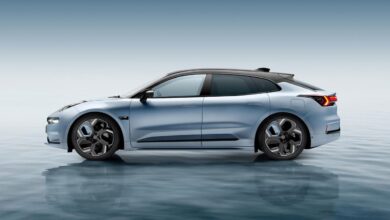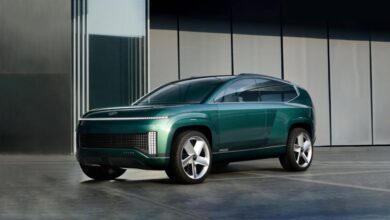Drive the Dream: Leasing the 2025 Electric Luxury SUV

The automotive world is witnessing a phenomenal transformation, and nowhere is this more apparent than in the segment of Luxury Electric SUVs. Gone are the days when ‘electric’ meant compromise.
Today, it signifies cutting-edge technology, blistering performance, silent sophistication, and, increasingly, a clever financial choice. In 2025, the proliferation of new, compelling models makes leasing the ultimate way to experience this high-tech, high-status category.
Leasing, particularly for high-end electric vehicles (EVs), offers a unique advantage: it insulates you from the main uncertainties of EV ownership, namely the rapid pace of technological change and unpredictable battery depreciation.
If you want the latest software, the longest range, and the freshest styling every three years, leasing is the intelligent path forward.
This comprehensive guide will explore the luxury EV SUV market in 2025, detail why leasing is the superior option, and help you navigate the key models and financial factors shaping your next driving experience.
Why Leasing is the Smart Play for Luxury EVs

Leasing has always been popular in the luxury segment because it grants access to expensive vehicles with lower monthly payments than financing a purchase. For electric vehicles, these benefits are amplified by several unique market dynamics in 2025.
A. Mitigating the Risk of Rapid Technological Obsolescence
The pace of EV innovation is breakneck. A battery with a 300-mile range today might be considered merely adequate in two years when 500-mile solid-state batteries become common.
- Guaranteed Trade Cycle: A typical 36-month lease ensures you are constantly rotating into the newest generation of battery technology, charging speed, and software integration. You avoid the pain of watching your vehicle’s technology become outdated just as the industry shifts gears.
- Access to New Platforms: Many 2025 luxury EVs are built on dedicated 800-volt electric platforms (like those from Audi, Porsche, and Genesis). Leasing allows you to experience these high-performance architectures without the long-term commitment.
B. Residual Value Protection and Financial Incentives
The residual value of any luxury car is important, but for EVs, it’s a critical leasing factor.
- Factory Subsidies: Automakers often heavily subsidize leases on new EV models to boost market share. They effectively inflate the projected residual value (the car’s expected worth at the end of the lease) or lower the money factor (the lease’s interest rate), making the monthly payment surprisingly affordable.
- Tax Credit Pass-Through: Crucially, the $7,500 Federal EV Tax Credit in the United States, which often applies only to certain US-made purchases, is nearly always accessible through leasing. The leasing company claims the credit and typically passes that full amount directly to the lessee as a capitalized cost reduction, lowering the monthly payment immediately. This is a massive financial incentive unique to EV leasing.
C. Enhanced Service and Maintenance Benefits
Luxury leases almost always include comprehensive maintenance packages.
- Worry-Free Ownership: EVs have fewer moving parts, but maintenance still occurs. Leasing often bundles scheduled servicing, tire rotation, and brake replacements into the monthly payment.
- Roadside Assistance and Loaners: Premium brands provide excellent lease support, including complimentary access to loaner vehicles and extensive roadside assistance—a hallmark of the luxury ownership experience.
The Contenders: Top Luxury Electric SUVs to Lease in 2025
The 2025 market is defined by choice, with new models arriving to challenge the established players. The best lease deals will often be found on the newest, highest-volume models that manufacturers are eager to place on the road.
A. The Established European Elites
These brands offer a blend of traditional luxury craftsmanship with cutting-edge EV technology.
- The Mercedes-Benz EQE/EQS SUV: These vehicles emphasize quiet comfort and digital immersion. Leasing the EQE SUV offers a more compact package than the flagship EQS, but both feature the expansive Hyperscreen digital dashboard and unparalleled ride quality. Mercedes-Benz consistently offers strong lease support.
- The BMW iX: Known for its polarizing design but universally praised driving dynamics, the iX is BMW’s electric technology flagship. Its focus on sustainable interior materials and punchy performance makes it a highly desirable lease option for the tech-forward driver.
- The Audi Q6 e-tron / Q8 e-tron: The Q6 e-tron, built on the new Premium Platform Electric (PPE) co-developed with Porsche, is a game-changer for Audi. It boasts 800-volt architecture for ultra-fast charging and is set to anchor Audi’s luxury EV lineup, likely attracting aggressive launch-period lease offers.
B. The Performance and Niche Challengers
These models target buyers who prioritize unique design, maximum performance, or off-road capability.
- The Porsche Macan EV: Moving to an all-electric platform for 2025, the Macan EV is a pure performance SUV. Leasing is perfect for this segment, as it provides a way to drive a world-class performance vehicle without the significant depreciation associated with high-end sports models.
- The Rivian R1S: The R1S is the adventure-focused luxury SUV. It appeals to a lifestyle segment that values capability as much as comfort. Lease deals are available, though they may be less subsidized than traditional luxury brands due to its niche appeal and strong demand.
- The Polestar 3: Positioning itself as a minimalist, Scandinavian-designed alternative, the Polestar 3 offers striking aesthetics and a focus on safety and sustainability. Its streamlined buying/leasing process appeals to consumers weary of the traditional dealership experience.
C. The Genesis & Lexus Contenders
Korean and Japanese luxury divisions are hitting their stride in 2025, offering incredible value and design.
- The Genesis GV60 / Electrified GV70: Genesis has quickly established itself as a design leader. The GV60 is a distinctive compact crossover, while the Electrified GV70 offers a familiar, well-loved luxury shape with an exceptional electric powertrain. Both models benefit from strong incentives and highly competitive lease rates.
- The Lexus RZ: The RZ is Lexus’s dedicated electric SUV, focusing on the brand’s signature tranquility and refinement. It represents a safe, comfortable, and predictable entry into luxury EV leasing, backed by Lexus’s reputation for exceptional dealer service.
Dissecting the Lease: Key Financial Factors in 2025

Understanding the math behind a lease is crucial to finding a truly “good deal.” For luxury EVs in 2025, the game revolves around three variables that dictate your monthly payment.
A. The Capitalized Cost (Cap Cost)
This is the selling price of the car used in the lease calculation.
- Dealer Discounts: Even on a lease, you can negotiate the selling price. A lower Cap Cost immediately translates to a lower monthly payment. Negotiate this as if you were buying the car outright.
- Cap Cost Reductions: This includes any cash down payment, trade-in value, and, most importantly, the Federal Tax Credit pass-through from the manufacturer. Maximizing these reductions directly slashes your principal balance.
B. The Residual Value
This is the agreed-upon value of the vehicle at the end of the lease term (e.g., 36 months). It is expressed as a percentage of the MSRP.
- EV Volatility: Historically, EV residual values have been lower than gasoline cars due to battery degradation fears and fast tech cycles. However, the best-performing luxury EVs in 2025 are showing stabilizing, higher residuals, which is excellent for leasing. A higher residual value means a lower monthly payment.
- Term Length Impact: Generally, a shorter lease term (24 or 36 months) results in a higher residual percentage because the car has depreciated less, often leading to the most appealing monthly payments.
C. The Money Factor
This is essentially the interest rate on the lease. It’s expressed as a decimal (e.g., 0.00200).
- Manufacturer Subvention: For 2025 luxury EVs, manufacturers are often offering incredibly low, or “subvented,” money factors as a key incentive. This is where the best deals are hidden. A low money factor saves you money on the interest portion of the payment, which, on a high-cost luxury EV, can amount to hundreds of dollars per month.
- Credit Score Impact: Your credit score is paramount. Only customers with top-tier credit (usually 740+) will qualify for the lowest advertised money factor and receive the best lease payments.
The Practicalities of EV Lease Ownership
Beyond the numbers, the luxury EV SUV lease experience involves practical considerations unique to electric driving in 2025.
A. Mileage Limits and Charging Habits
Lease contracts come with defined annual mileage limits (e.g., 10,000, 12,000, or 15,000 miles).
- Over-Mileage Penalties: Since luxury cars hold their value, the penalties for exceeding mileage limits are often steep (e.g., $0.25 to $0.50 per mile). It is essential to choose a mileage plan that accurately reflects your driving habits.
- Home Charging Installation: While not directly part of the lease, installing a dedicated Level 2 home charger is necessary for a premium EV experience. Many automakers offer installation credits or partnerships, which can often be factored into the overall cost calculation.
B. Wear and Tear Guidelines
Luxury leasing demands a higher standard of care for the vehicle.
- Premium Lease Protection: Many luxury brands offer optional “Excess Wear and Tear” coverage. This is often a wise investment for an EV, as minor damage to unique components (like the large infotainment screens or bespoke interior trim) can be expensive to repair before the final inspection.
- Tire Wear: Luxury EV SUVs are heavy and powerful, often resulting in faster tire wear. Lease agreements typically require a specific minimum tread depth at return, so budgeting for one set of replacement tires during a 36-month lease is a common and prudent financial consideration.
C. Insurance and Registration
The high MSRP and advanced technology of luxury EVs can lead to higher insurance premiums.
- Required Coverage: Leasing companies mandate full comprehensive and collision insurance, often with specific liability minimums. Always get a quote before signing the lease, as the monthly insurance cost can drastically change your total driving expenses.
- State Fees: Depending on the region, some states charge hefty registration fees for EVs based on their weight or to recoup lost gasoline tax revenue. Factor these into your initial “drive-off” costs.
Conclusion
The year 2025 truly marks the moment the Luxury Electric SUV transitioned from a technological novelty to a powerful, desirable, and financially sensible mainstay.
The convergence of new 800-volt charging platforms, dramatic range improvements from brands like Audi and Porsche, and the undeniable design appeal of challengers like Genesis and Rivian has created a buyer’s market saturated with incredible options.
Leasing emerges as the perfect financial vehicle for this high-speed, high-stakes segment. By leasing, you strategically offload the two biggest risks associated with a rapidly evolving technology: the fear of technological obsolescence and the unpredictable nature of future residual values.
The full pass-through of federal tax credits, combined with aggressive subvention from manufacturers eager to place their newest electric platforms on the road, creates monthly payments that are often far more attractive than their gasoline-powered predecessors.
The choice of which luxury electric SUV to lease in 2025 boils down to personal preference—whether you desire the digital sanctuary of a Mercedes EQE, the unapologetic performance of the Porsche Macan EV, or the rugged individuality of the Rivian R1S.
Regardless of the badge, leasing allows you to secure a state-of-the-art vehicle, complete with the latest autonomous driving features and sustainable luxury interiors, while maintaining financial flexibility.
You are not just getting a car; you are securing a ticket for a three-year membership to the most exclusive, high-tech driving club on the planet, ready to trade up the moment the next revolution rolls off the assembly line. In 2025, leasing the dream is both the most thrilling and the most pragmatic decision you can make.







